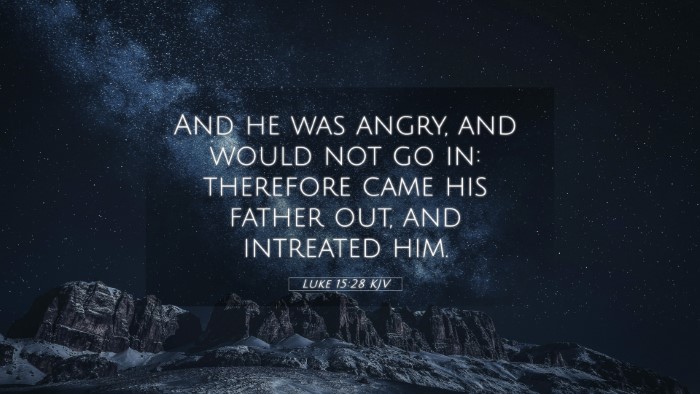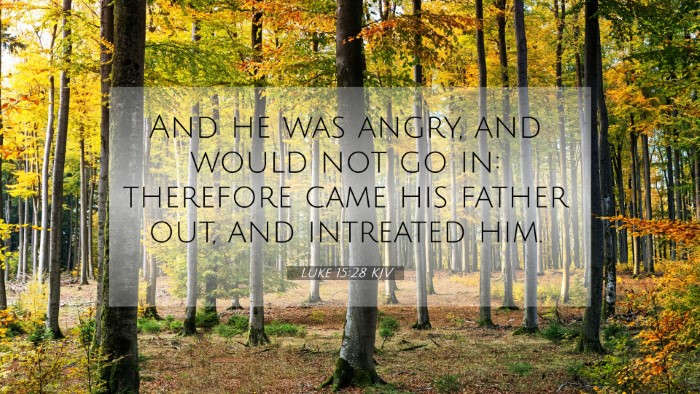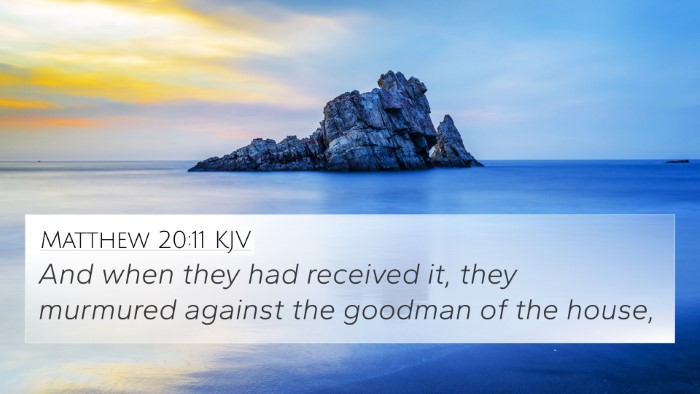This section features a detailed cross-reference designed to enrich your understanding of the Scriptures.
Below, you will find carefully selected verses that echo the themes and teachings related to Luke 15:28 KJV. Click on any image to explore detailed analyses of related Bible verses and uncover deeper theological insights.
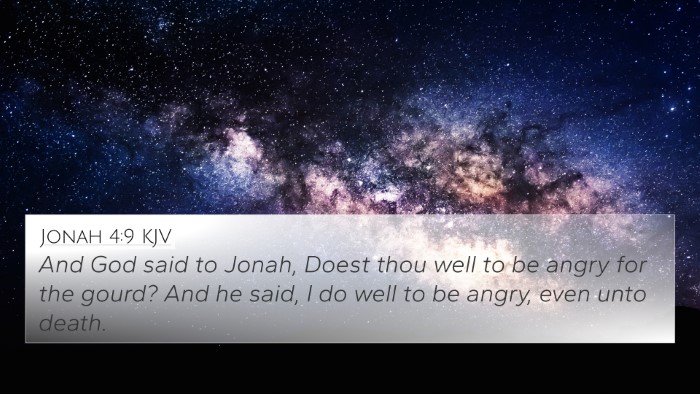 Jonah 4:9 (KJV) »
Jonah 4:9 (KJV) »
And God said to Jonah, Doest thou well to be angry for the gourd? And he said, I do well to be angry, even unto death.
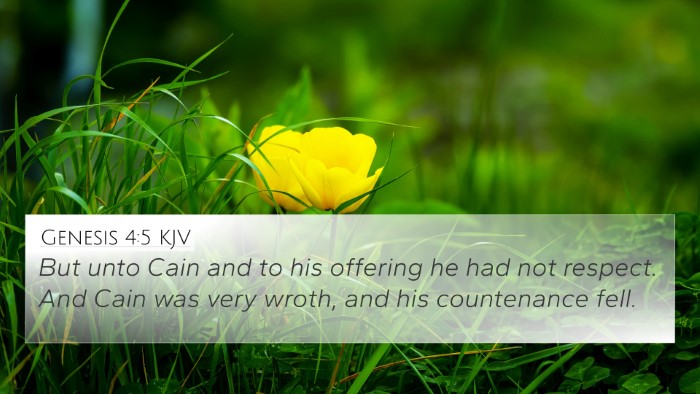 Genesis 4:5 (KJV) »
Genesis 4:5 (KJV) »
But unto Cain and to his offering he had not respect. And Cain was very wroth, and his countenance fell.
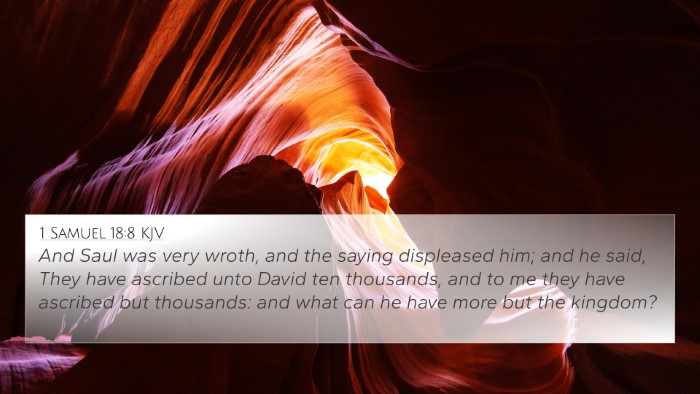 1 Samuel 18:8 (KJV) »
1 Samuel 18:8 (KJV) »
And Saul was very wroth, and the saying displeased him; and he said, They have ascribed unto David ten thousands, and to me they have ascribed but thousands: and what can he have more but the kingdom?
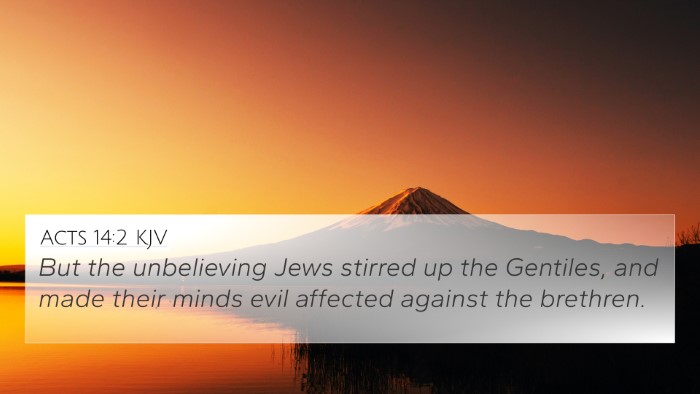 Acts 14:2 (KJV) »
Acts 14:2 (KJV) »
But the unbelieving Jews stirred up the Gentiles, and made their minds evil affected against the brethren.
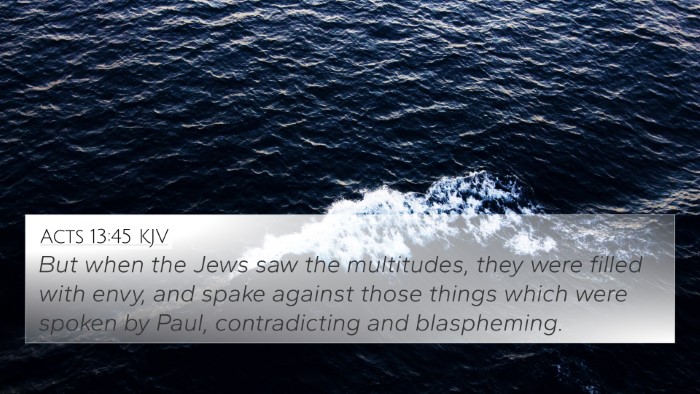 Acts 13:45 (KJV) »
Acts 13:45 (KJV) »
But when the Jews saw the multitudes, they were filled with envy, and spake against those things which were spoken by Paul, contradicting and blaspheming.
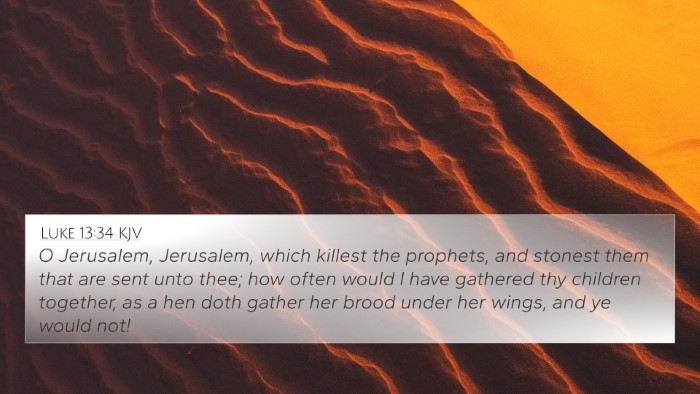 Luke 13:34 (KJV) »
Luke 13:34 (KJV) »
O Jerusalem, Jerusalem, which killest the prophets, and stonest them that are sent unto thee; how often would I have gathered thy children together, as a hen doth gather her brood under her wings, and ye would not!
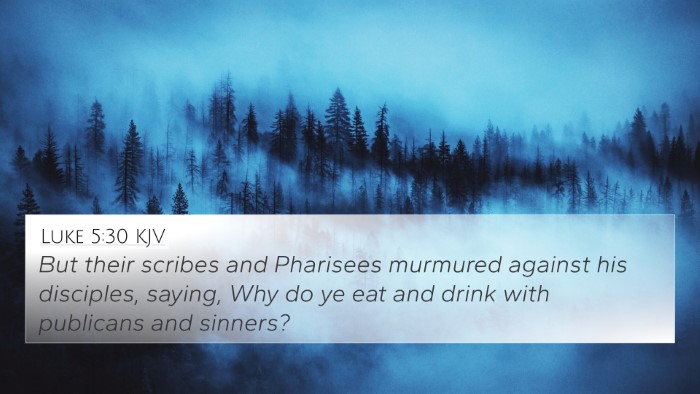 Luke 5:30 (KJV) »
Luke 5:30 (KJV) »
But their scribes and Pharisees murmured against his disciples, saying, Why do ye eat and drink with publicans and sinners?
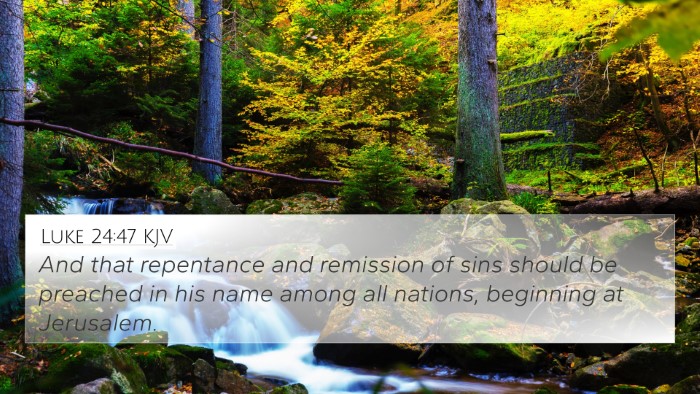 Luke 24:47 (KJV) »
Luke 24:47 (KJV) »
And that repentance and remission of sins should be preached in his name among all nations, beginning at Jerusalem.
 Luke 7:39 (KJV) »
Luke 7:39 (KJV) »
Now when the Pharisee which had bidden him saw it, he spake within himself, saying, This man, if he were a prophet, would have known who and what manner of woman this is that toucheth him: for she is a sinner.
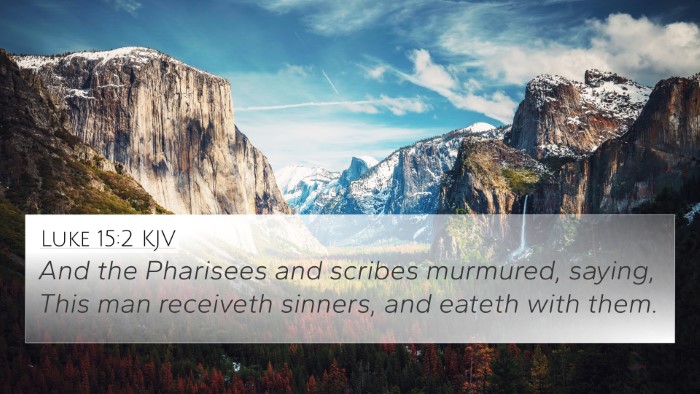 Luke 15:2 (KJV) »
Luke 15:2 (KJV) »
And the Pharisees and scribes murmured, saying, This man receiveth sinners, and eateth with them.
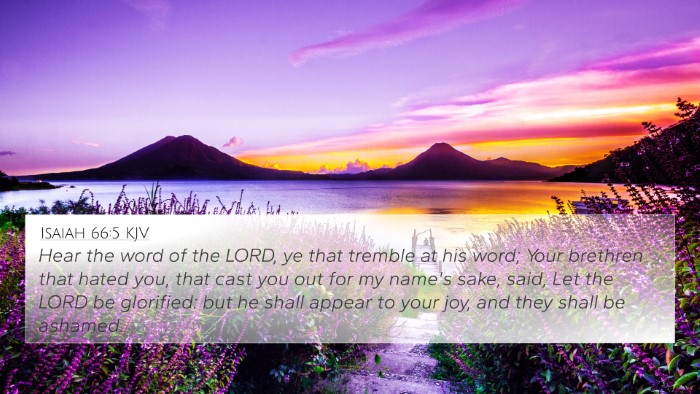 Isaiah 66:5 (KJV) »
Isaiah 66:5 (KJV) »
Hear the word of the LORD, ye that tremble at his word; Your brethren that hated you, that cast you out for my name's sake, said, Let the LORD be glorified: but he shall appear to your joy, and they shall be ashamed.
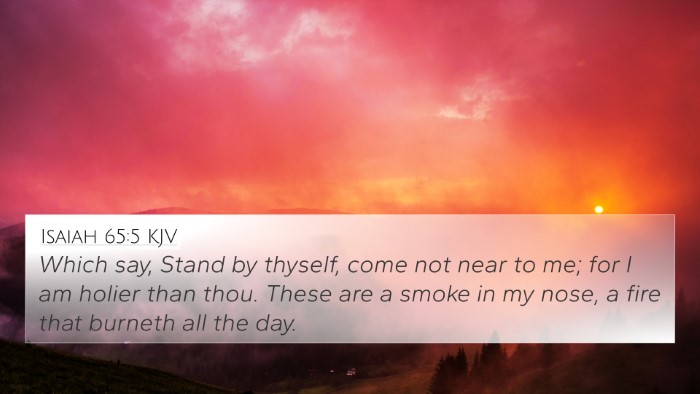 Isaiah 65:5 (KJV) »
Isaiah 65:5 (KJV) »
Which say, Stand by thyself, come not near to me; for I am holier than thou. These are a smoke in my nose, a fire that burneth all the day.
 1 Samuel 17:28 (KJV) »
1 Samuel 17:28 (KJV) »
And Eliab his eldest brother heard when he spake unto the men; and Eliab's anger was kindled against David, and he said, Why camest thou down hither? and with whom hast thou left those few sheep in the wilderness? I know thy pride, and the naughtiness of thine heart; for thou art come down that thou mightest see the battle.
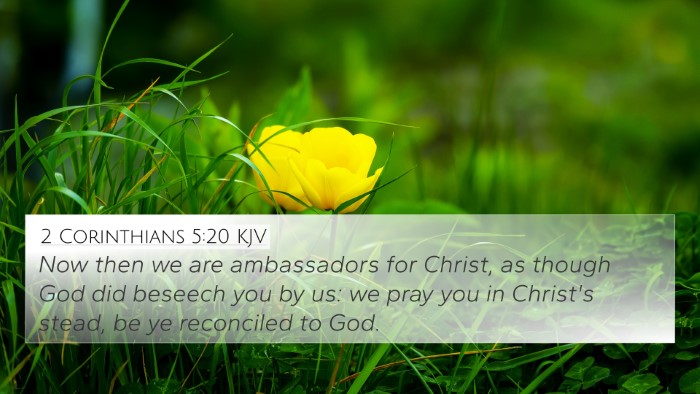 2 Corinthians 5:20 (KJV) »
2 Corinthians 5:20 (KJV) »
Now then we are ambassadors for Christ, as though God did beseech you by us: we pray you in Christ's stead, be ye reconciled to God.
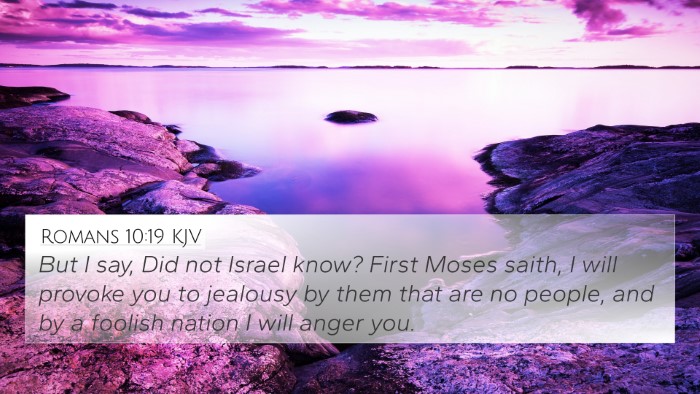 Romans 10:19 (KJV) »
Romans 10:19 (KJV) »
But I say, Did not Israel know? First Moses saith, I will provoke you to jealousy by them that are no people, and by a foolish nation I will anger you.
 Acts 22:21 (KJV) »
Acts 22:21 (KJV) »
And he said unto me, Depart: for I will send thee far hence unto the Gentiles.
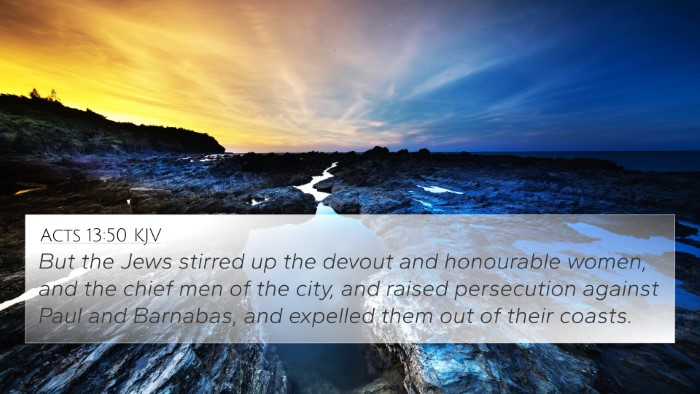 Acts 13:50 (KJV) »
Acts 13:50 (KJV) »
But the Jews stirred up the devout and honourable women, and the chief men of the city, and raised persecution against Paul and Barnabas, and expelled them out of their coasts.
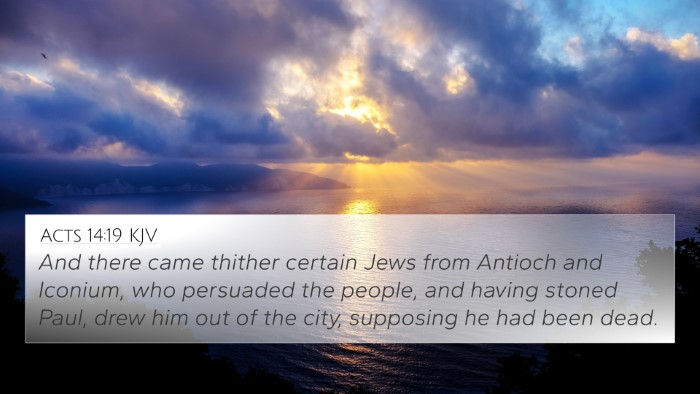 Acts 14:19 (KJV) »
Acts 14:19 (KJV) »
And there came thither certain Jews from Antioch and Iconium, who persuaded the people, and having stoned Paul, drew him out of the city, supposing he had been dead.
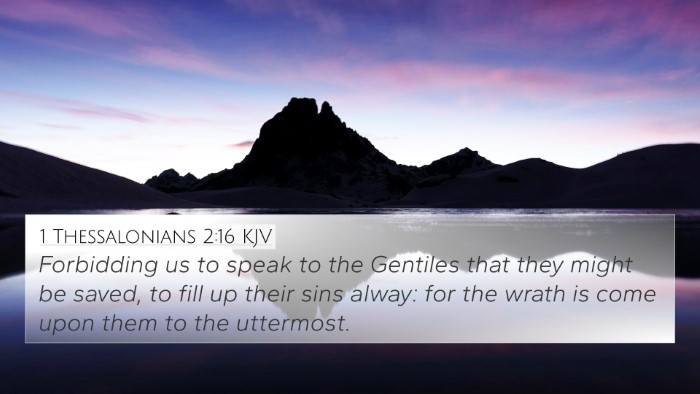 1 Thessalonians 2:16 (KJV) »
1 Thessalonians 2:16 (KJV) »
Forbidding us to speak to the Gentiles that they might be saved, to fill up their sins alway: for the wrath is come upon them to the uttermost.

